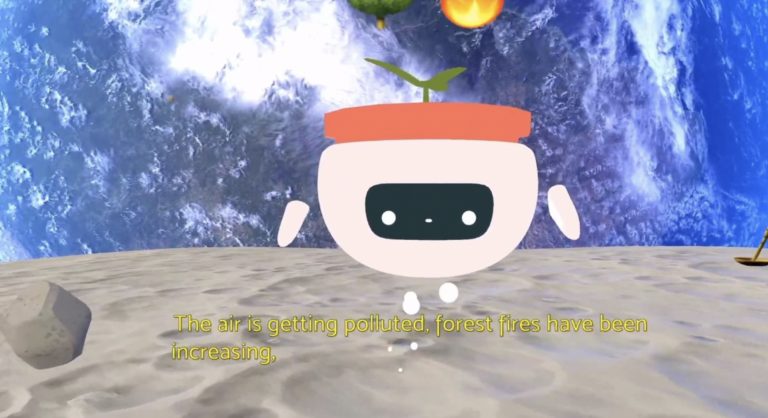CMD student Glenn Wustlich created a Virtual Reality experience for his graduation that teaches young people more about climate change in a playful way. He received a 10 and received an award from his education for the best educational student work. “I wanted to make something that I would later think: this is a great thing to leave behind.”
Glenn Wustlich (26) had been aware of the climate problem for some time, and tried to pay attention to it in his daily life: don’t accept plastic bags, eat less meat and, as he puts it, “appreciate everything more at all.”
CMD student Glenn Wustlich created a Virtual Reality experience for his graduation that teaches young people more about climate change in a playful way. He received a 10 and received an award from his education for the best educational student work. “I wanted to make something that I would later think: this is a great thing to leave behind.”
He became even more involved with the subject when he worked on a VR animation for PwC about the Sustainable Development Goals (SDGs). By using his design talent, he was also able to involve other people in the urgent subject. So when Glenn came up with an idea for a graduation project, he quickly knew that this too had to be about global issues, and climate change in particular.
Welspoken robot
The result is impressive: in four months Glenn designed The Wide World and its Pitiful Problems, a Virtual Reality experience. The player is introduced to the robot POTT, who enters into a conversation about climate change in a light-hearted way. After an interlude where you have to throw a penguin through hoops, the game ends with a quiz about what you can do yourself to combat climate change.
At the climate psychologist
Glenn did not take any chances: he did research beforehand and spoke with a climate psychologist, among others. “It gave me an important insight: caring, not scaring,” says Glenn. “When people are presented with a disaster or doomsday scenario, they tend not to listen; they don’t want to know. It helps if you deliver the message in a positive and light-hearted way. The idea of this VR experience is also that you can contribute to the solution yourself with small steps.”
He deliberately chose a broad target group: Glenn mainly focused on people who are somewhat open to the subject, but who do not really know the how, what and why.
